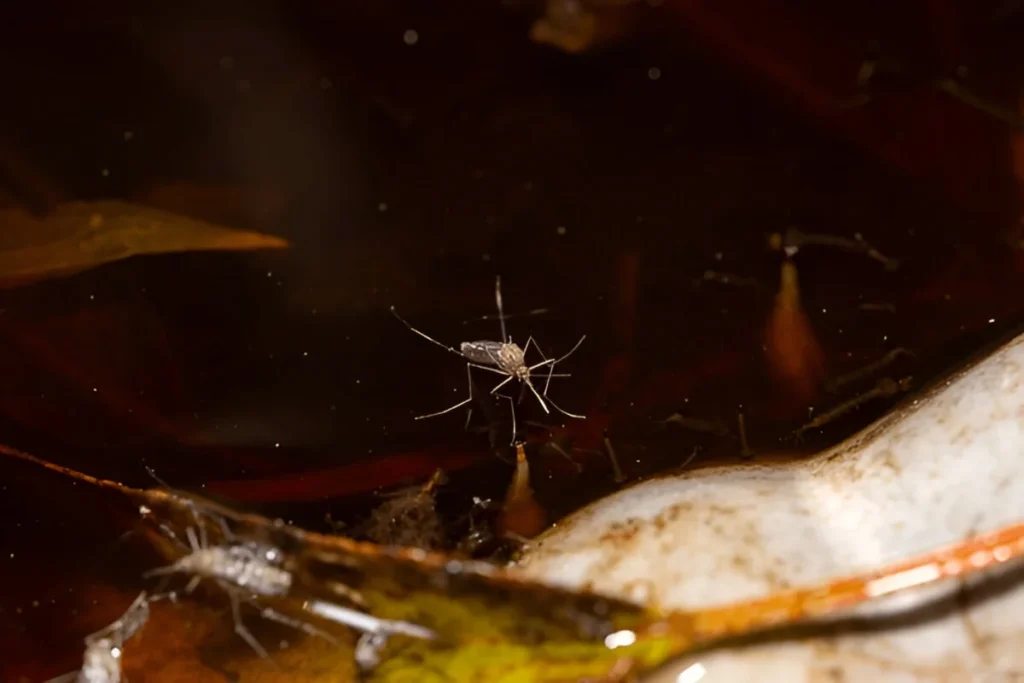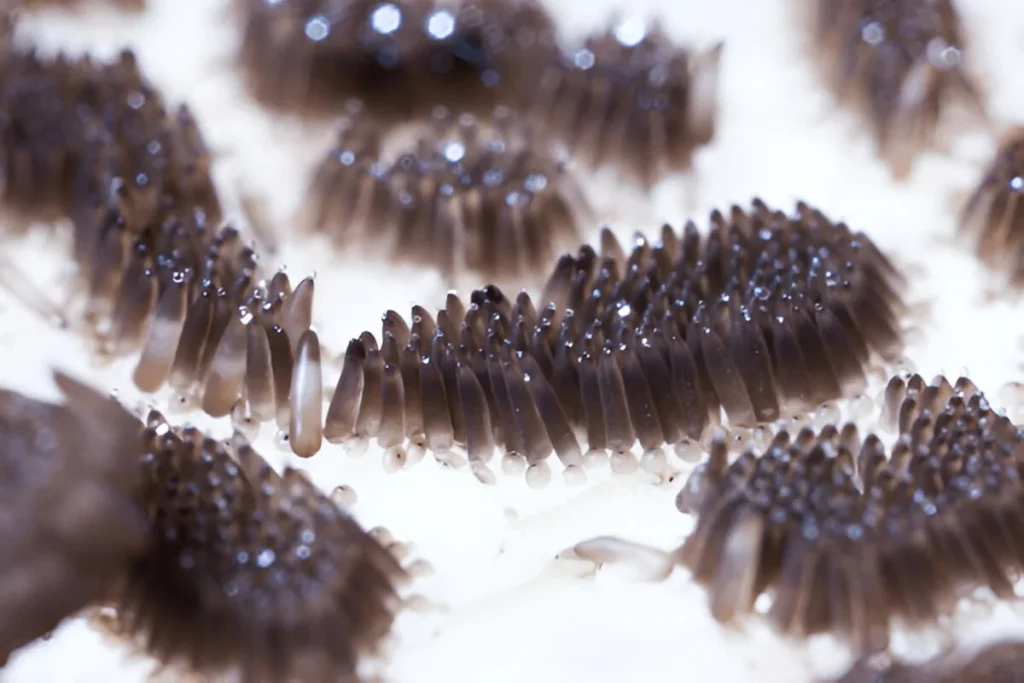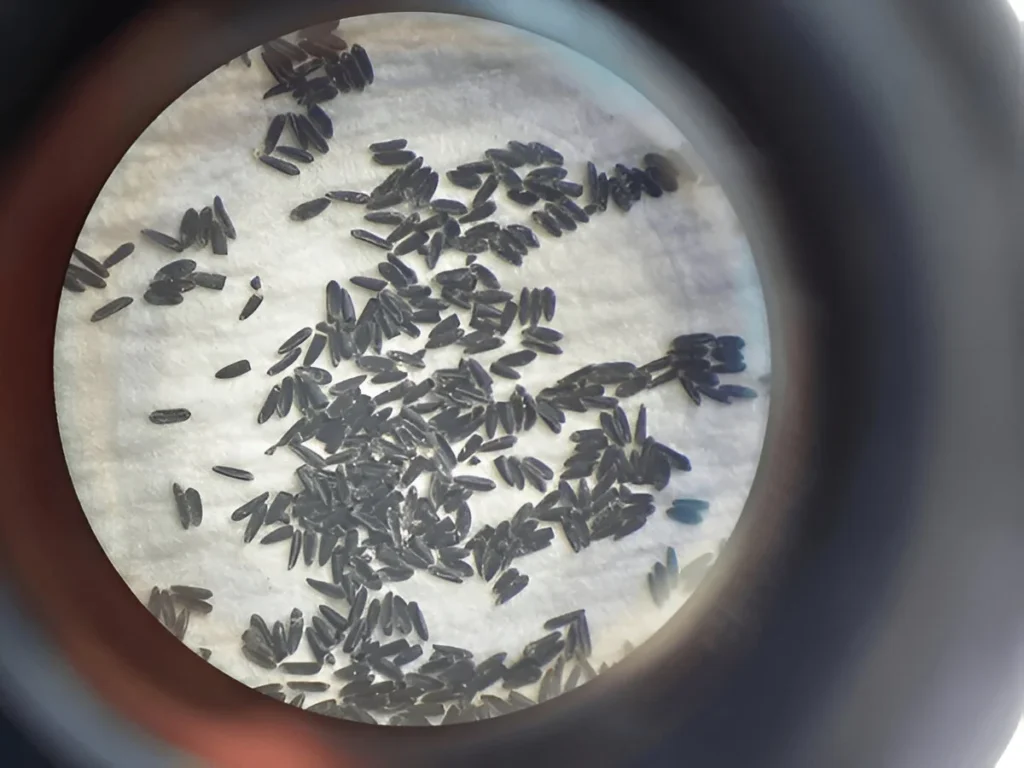-
Govind Bhawan,Kolkata - 700001
Govind Bhawan,Kolkata - 700001

Wondering how to spot mosquito egg growth around your home? Learn the early signs, prevention tips, and expert ways to control them with guidance from a reputed Pest Control Company.
Mosquitoes are more than just a buzzing nuisance — they’re among the most efficient disease carriers in the world. From dengue and malaria to chikungunya, they can turn your peaceful nights into sleepless ones and even risk your health. While most people focus on adult mosquitoes, the real battle begins long before they start flying — during the mosquito egg growth stage.
Understanding how to detect and prevent mosquito eggs from developing can make a huge difference in keeping your surroundings healthy and safe.
Before you can recognize mosquito egg growth, it’s essential to understand how mosquitoes breed and multiply. The life cycle of a mosquito consists of four main stages:
This entire process can take just 7 to 10 days under favorable conditions, meaning that even a small puddle left untouched can lead to a full-blown mosquito infestation within a week.

Spotting mosquito eggs can be tricky — they’re small and often hidden in dark, damp corners. However, there are a few visible indicators and environmental clues that signal mosquito egg growth nearby.
Mosquitoes prefer to lay their eggs on the surface of still water. Look out for:
If you find any of these around your home, there’s a good chance that mosquito egg growth may already have started.
Mosquito eggs often look like tiny black or brown rafts floating on water surfaces. These clusters can contain up to 100 eggs and are sometimes mistaken for dirt or dust.
If you notice more mosquitoes around your home, especially during early morning or evening hours, it may indicate nearby breeding grounds.
Areas that remain damp and poorly ventilated can support egg hatching. A musty smell or constantly wet surface can hint at mosquito-friendly environments.
You might notice tiny wiggling creatures in puddles or containers. These are mosquito larvae — a direct sign that egg growth has already taken place.
Catching the signs of mosquito egg growth early can help you:
Even the cleanest homes can unknowingly host mosquito breeding grounds. Eggs are commonly found in:
Pro Tip: Mosquito eggs can survive even when the water dries up, waiting for the next rainfall to hatch. Regular cleaning is key.

Preventing mosquito breeding starts with eliminating the conditions they love. Here are proven steps:
Empty and scrub containers that can collect rainwater, like flowerpots, buckets, and old tires.
Ensure tanks are tightly closed and drains are unclogged to prevent mosquito egg growth.
Plant mosquito-repelling herbs such as:
Their natural aroma discourages female mosquitoes from laying eggs nearby.
If you have a garden pond, fish like guppies or goldfish can eat mosquito larvae, breaking the life cycle naturally.
Safe biological larvicides are available that target mosquito larvae without harming pets or humans.
Damp areas promote mosquito egg survival. Sunlight and airflow can significantly reduce breeding potential.
If you spot potential mosquito breeding signs, here’s what you should do immediately:
Sometimes, home remedies might not be enough, especially if eggs are laid in unreachable areas like underground drains or overhead tanks. In such cases, calling experts from the Best Pest Control Company in Kolkata can help eliminate the problem at its root.
By maintaining these habits, you reduce the chance of mosquito egg growth even during peak breeding seasons like monsoon.

Q1. How long do mosquito eggs take to hatch?
Mosquito eggs usually hatch within 24–48 hours if they’re in a moist environment or on the surface of still water.
Q2. Can mosquito eggs survive without water?
Yes. Some species can survive for months in dry conditions until they come into contact with water again.
Q3. Where do mosquitoes lay their eggs indoors?
Indoors, they often lay eggs in flower vases, pet water bowls, or any container that holds water for more than a few days.
Q4. Do mosquito eggs float or sink?
They typically float in clusters, resembling black rafts on water surfaces.
Q5. Can cleaning products destroy mosquito eggs?
Bleach, phenyl, or hot water can destroy mosquito eggs effectively if applied to the breeding source.
Preventing mosquito egg growth is not just about comfort — it’s about health and safety. By paying attention to early signs, maintaining hygiene, and using eco-friendly methods, you can stop mosquito infestations before they begin.
A clean, dry, and well-maintained environment protects not only your home but also your entire neighborhood. So, stay alert, act early, and let prevention be your strongest shield against mosquito-borne troubles.